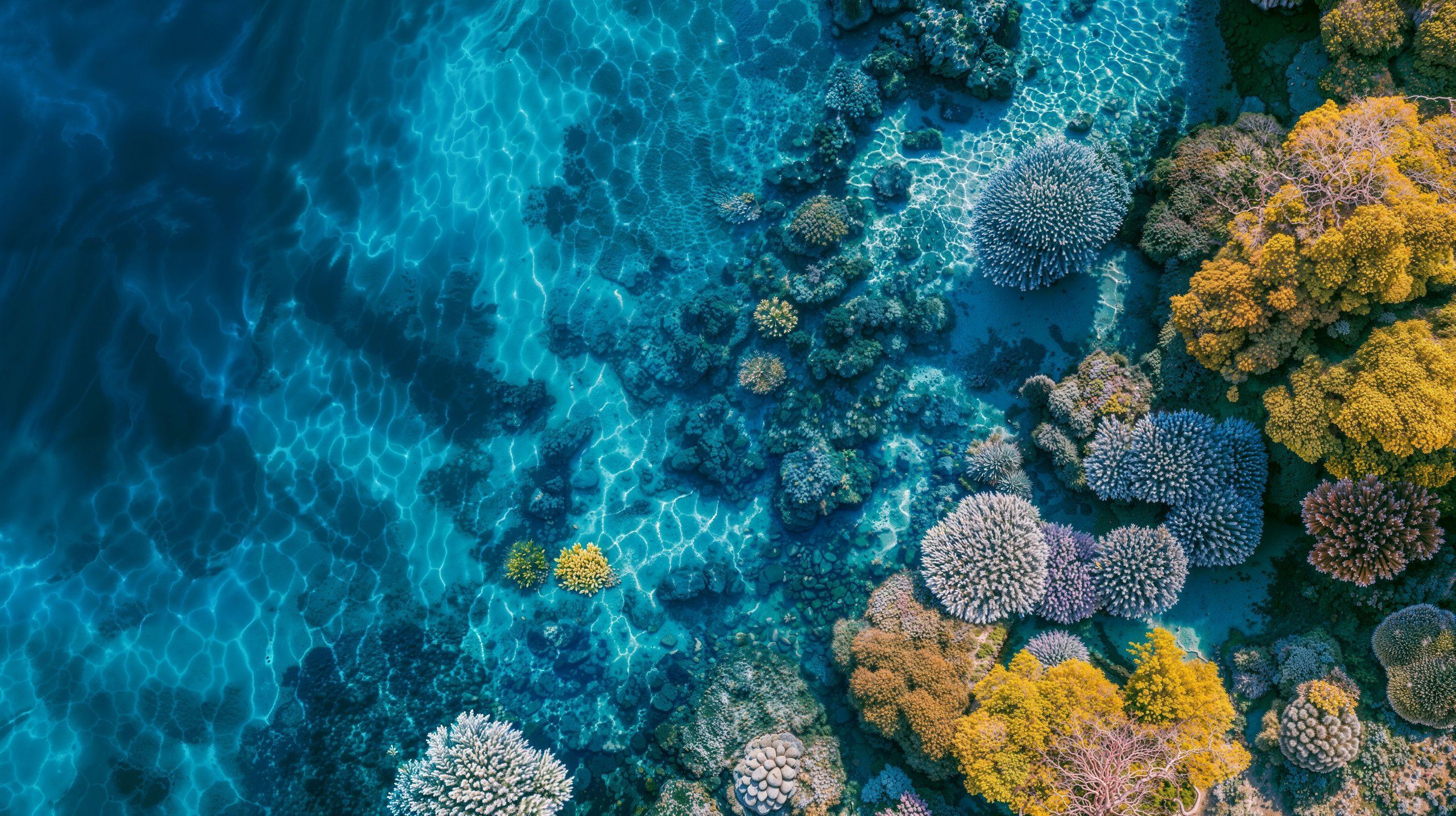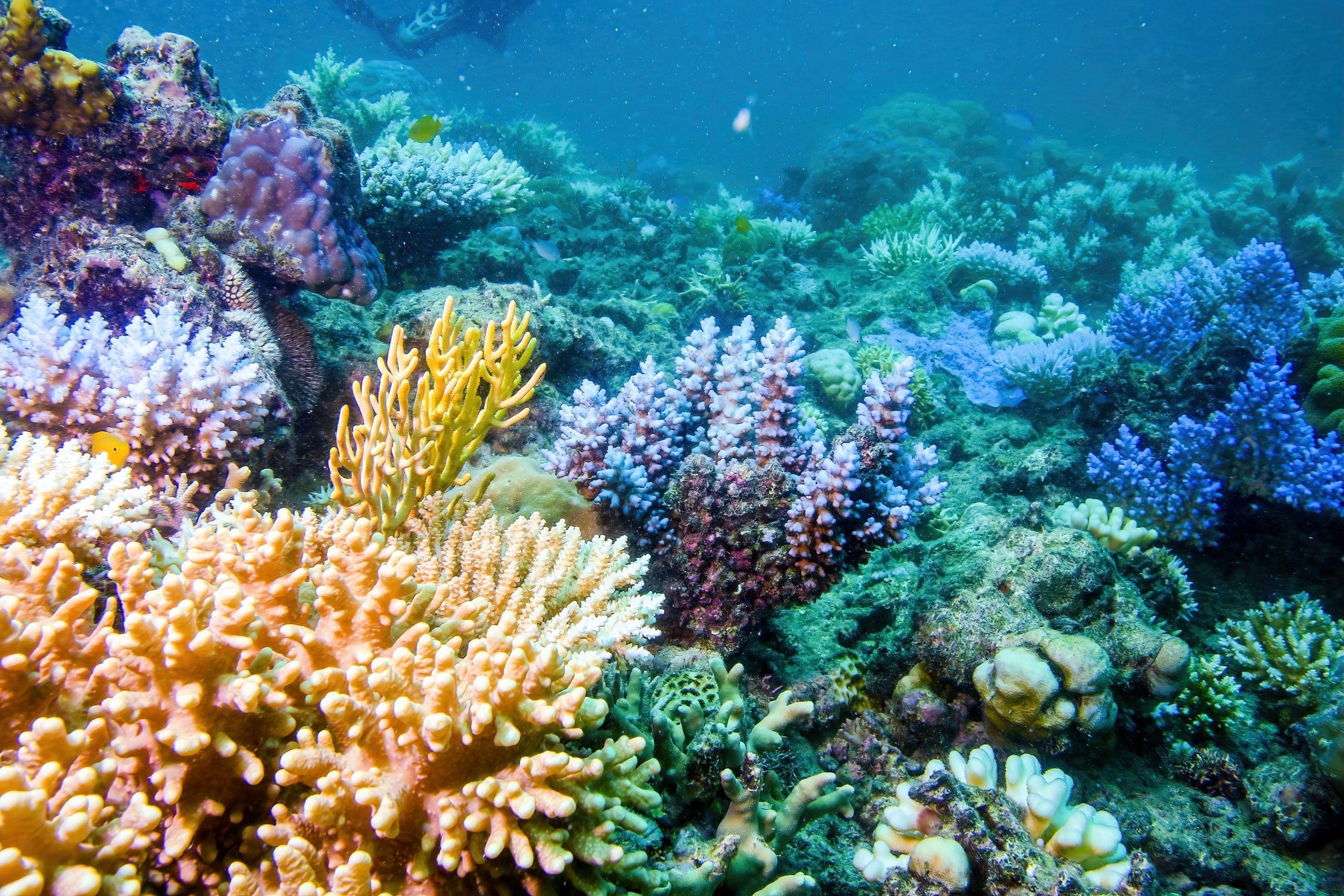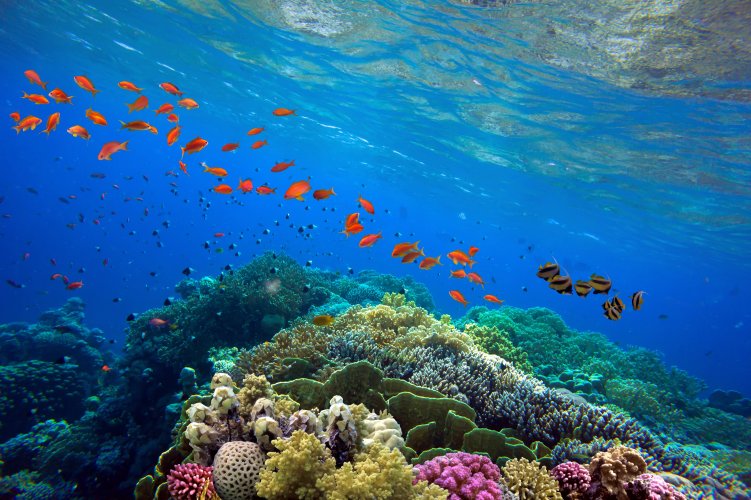Australia's Great Barrier Reef is at risk of collapse due to rising ocean temperatures around it, which over the past decade have reached their highest level in 400 years.
Reuters writes about this with reference to research by Australian scientists.
The Great Barrier Reef in Australia is the world's largest living ecosystem, stretching for about 2,400 km. Australian scientists have conducted a unique study that examines the effects of anthropogenic climate change in a historical context, as other studies of damage to the reef have shorter time frames.
A team of scientists from universities in Australia drilled cores (cylindrical columns – like columns of rock that are obtained when drilling wells) into the coral and, similar to counting tree rings, analyzed the samples to measure summer ocean temperatures starting in 1618.

Scientists say that ocean temperatures, which have been stable for hundreds of years, have started to rise since 1900 as a result of human influence.
From 1960 to 2024, the study authors observed an average annual warming between January and March of 0.12°C per decade. Since 2016, the reef has experienced 5 summer periods of mass coral bleaching. This is a phenomenon where large areas of the reef lose color due to heat stress, which increases the risk of their death.
The study found that these summers coincided with 5 of the 6 warmest years of the last 400 years.
"The world is losing one of its icons. I think it's an absolute tragedy. It's hard to understand how this could happen before our eyes, in our lifetime. It's very, very sad," said Benjamin Hanley, a lecturer at the University of Melbourne and one of the co-authors of the study.
According to him, the latest temperature data from January to March this year were the highest in the entire history of observations and "head and shoulders" higher than any other year.

According to the US National Oceanic and Atmospheric Administration (NOAA), as of February 2023, at least 54 countries and regions have experienced mass bleaching of their reefs as climate change has warmed surface ocean waters.
The Great Barrier Reef is not currently on UNESCO's list of World Heritage Sites in Danger, although the UN recommends it be added there. Australia has lobbied for years to remove the reef, which generates $4.2 billion a year for its economy, from the endangered species list because it could harm tourism.
Lissa Schindler, Great Barrier Reef campaign manager at the Australian Marine Conservation Society, believes:
"Australia must step up its ambition, action and commitment to tackle climate change and protect our greatest natural resource."
In May, Ekopolitika wrote about what is extremely fast rising ocean temperatures are frightening scientists





